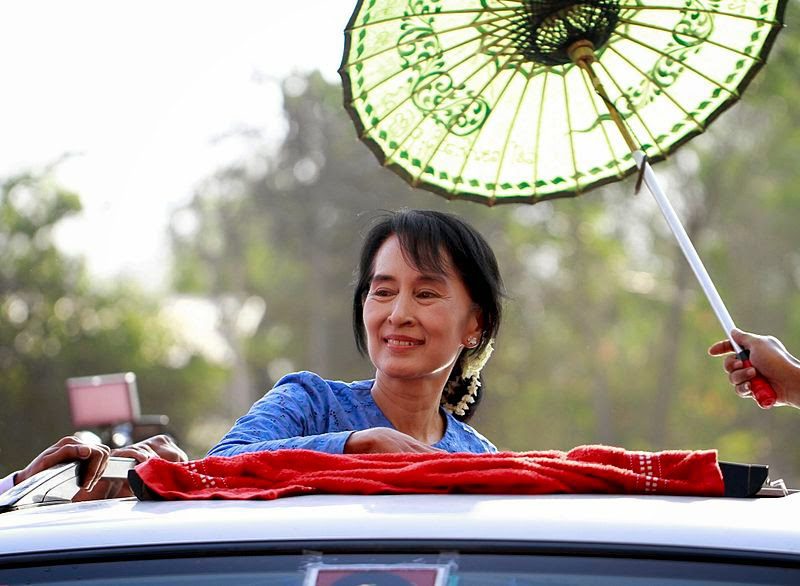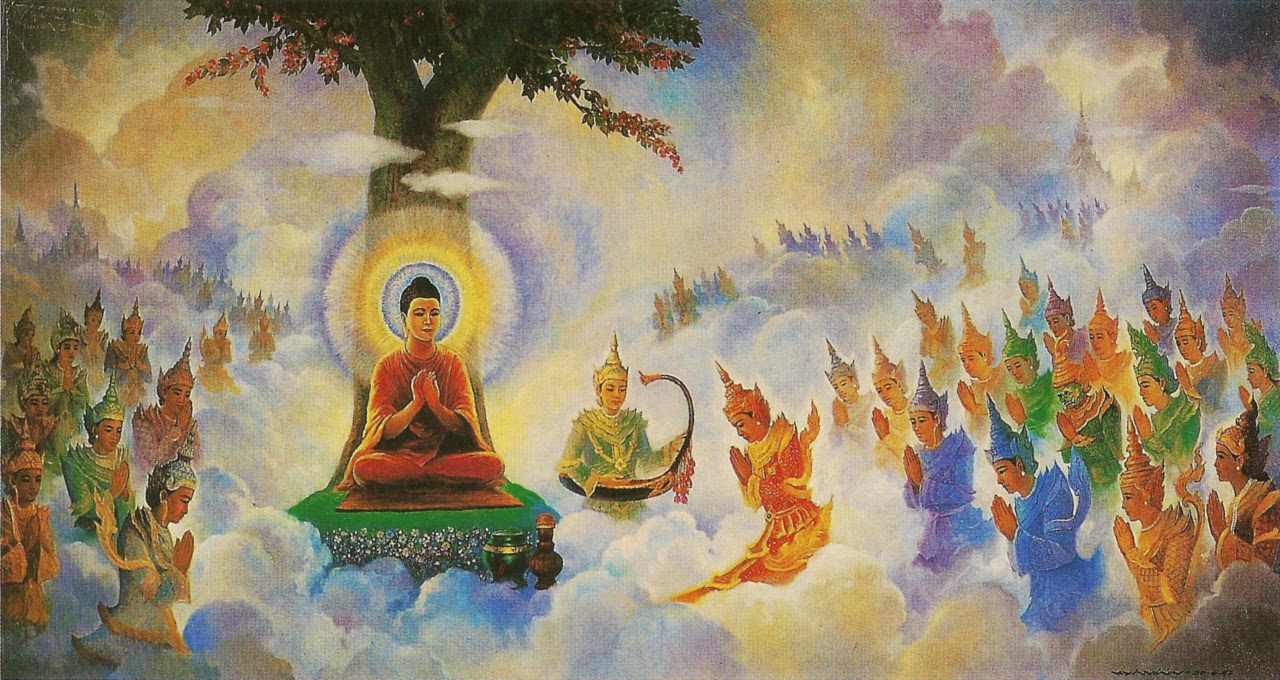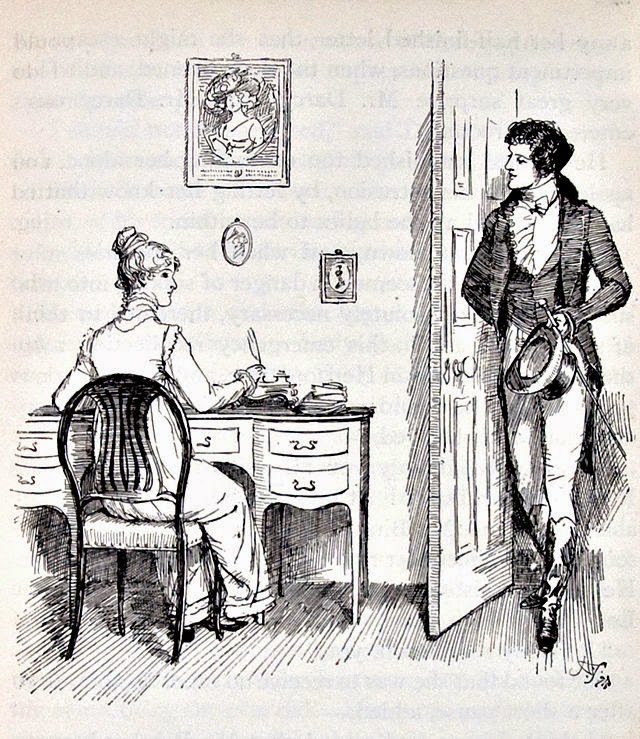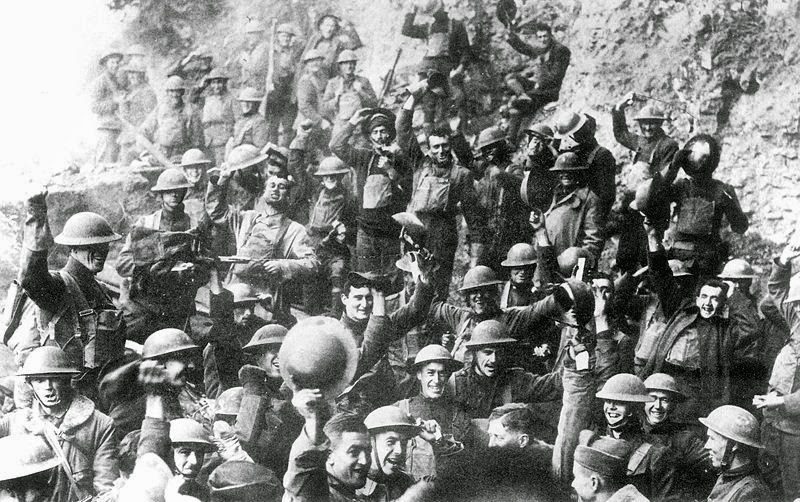Aung San Suu Kyi’s favourite books, including John le Carré, Austen & WWI poetry
BBC Radio 4’s Desert Island Discs makes for intriguing listening. Each episode invites the chosen castaway (a celebrity or important figure of lesser or greater fame or virtue) to choose eight pieces of music, a book (in addition to the Bible – or religious text – and The Complete Works of Shakespeare) and a luxury item.
A favourite of mine is the interview with Aung San Suu Kyi, first broadcast on 27 January 2013, which is a rare personal interview with the Chairperson and General Secretary of the National League for Democracy in Burma.
Aung San Suu Kyi is an incredible figure of courage and an endless campaigner for democracy, and I’ve been previously inspired by her collective writings, Freedom From Fear. However, even the strongest of wills would by tested by facing almost 15 years of house arrest. To hear about the music and books that helped Aung San Suu Kyi to retain a degree of strength during this time is a great gift to us.
 |
| Nobel laureate Aung San Suu Kyi arrives to give speech at her constituency Kawhmu township, Myanmar on 22 March 2012. Image by Htoo Tay Zar. |
1. Aung San Suu Kyi’s book for a desert island: the Abhidhamma
As her one book to enjoy as a castaway on Desert Island Discs, Aung San Suu Kyi chose the Buddhist Abhidhamma, a collection of core Buddhist texts. I’m fascinated by Buddhism, and I’m currently reading The Places That Scare You: A Guide to Fearlessness in Difficult Times by Pema Chödrön, an American Buddhist nun in the lineage of Chögyam Trungpa.
The book is a great introduction to becoming a “warrior” of the mind, and comes with some great advice to apply to our own lives (on both good and bad days):
May we continue to open our hearts and minds, in order to work ceaselessly for the benefit of all beings.
May we go to the places that scare us.
May we lead the life of a warrior.
 |
| The Buddha preaching the Abhidhamma. |
 |
| Elizabeth and Mr Darcy by Hugh Thomson, 1894 |
2. Fiction by and about inspiring people (alongside beautifully written books)
Of course I read a lot about people who were inspiring, people who could help me with my task… Gandhi, Nero, Václav Havel. At the same time, I would re-read Jane Austen and get a lot out of that, simply through the beauty of the language.
– Desert Island Discs, 27 January 2013
3. John le Carré’s novels
I have to mention one of my fellow honorands at this time, because when I was under house arrest I was also helped by the books of John le Carré. They were an escape – I won’t call it an escape, they were a journey into the wider world. Not the wider world just of other countries, but of thoughts and ideas. And these were the journeys that made me feel that I was not really cut off from the rest of humankind. I was never alone, because there were many, many avenues to places far away from where I was.
– Oxford University Speech, 20 June 2012
 |
| Gary Oldman as George Smiley in the 2011 film adaptation of Tinker Tailor Soldier Spy. |
4. Poetry of the First World War
The First World War represented a terrifying waste of youth and potential, a cruel squandering of the positive forces of our planet. The poetry of that era has a special significance for me because I first read it at a time when I was the same age as many of those young men who had to face the prospect of withering before they had barely blossomed.
– Nobel Lecture, Oslo, 16 June 2012
I have a rendezvous with Death
On some scarred slope of battered hill,
When Spring comes round again this year
And the first meadow-flowers appear.
 |
| Men of U.S. 64th Regiment, 7th Infantry Division, celebrate the news of the Armistice, November 11, 1918 |
Enjoy more from me
- Retreat into my new book, Your Life in Bloom: Finding Your Path and Your Courage, Grounded in the Wisdom of Nature.
- I'm also the author of Mountain Song: A Journey to Finding Quiet in the Swiss Alps, a book about my time living alone by the mountains.
- If you love books, are feeling a little lost right now, and would love some gentle comfort and guidance, join The Sanctuary, my seven-day course to rebalance your life.
